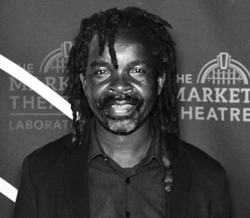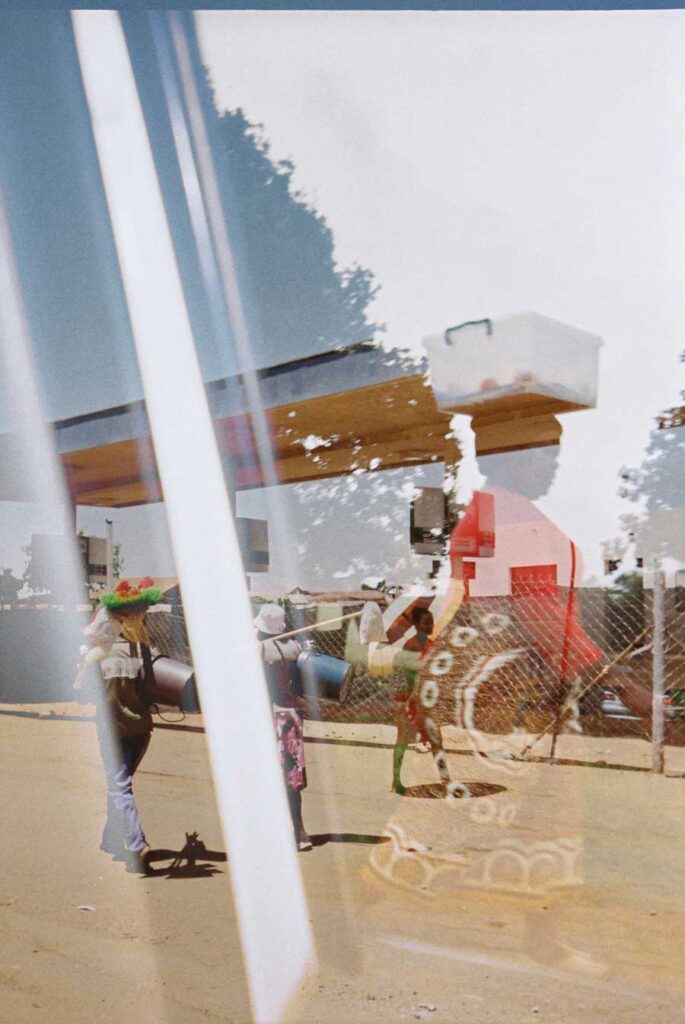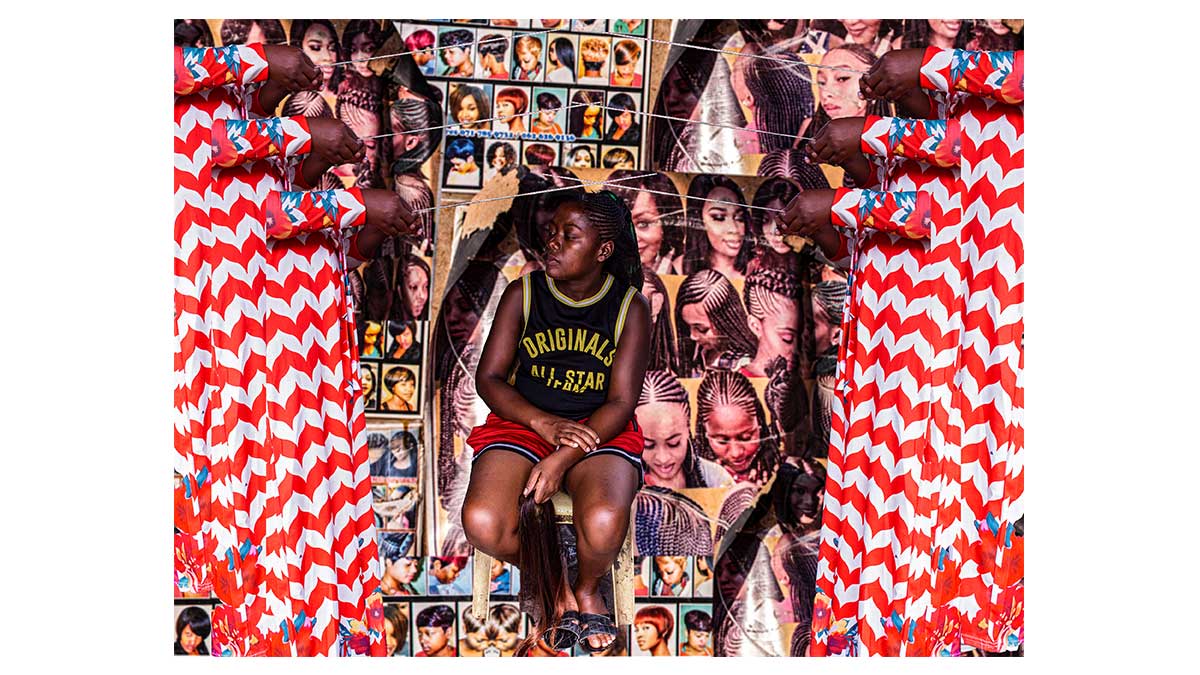Politics of hair and street hair stylists to be under microscope at book launch on Saturday in Newtown
By Edward Tsumele, CITYLIFE/ARTS Editor

The hair business is a complex business. I have learned this reality for sometime now. How you wear your hair, long or short, pink or red, black or blue, is not just a question of style. It is a reflection of personal and identity complexities. Of course you must have met all sorts of people wearing their hair in that style or this style, and believe me you, it is more than a question of how they like to look and even get appreciated by those who care to look at them and their hair style.
For instance, If you see someone bald headed, all the time, do not rush into conclusion. Yes there are those who have a choice and will wear their hair that way as a question of personal taste and style because they may have seen a famous person such as an actor, TV presenter or a basketball star, wearing their hair in that fashion. But it could be more than that. It could be that they actually have no hair left on their head to speak of (sometimes a an illness such as cancer wipes out hair on someone’s head, I am told by especially lady friends of mine who like wearing wigs or no hair at all). It could also be just a question of identity, such as the right wing people whose label I have just forgotten, which means it is an identity issue. It could also be that old age has caught up with someone, and the hair has become the colour that they do not appreciate, and are tired of dying it black. Under those circumstances, why not cut it off the damn thing completely?

Personally, I have had dreadlocks for over two decades, at different length at different times, depending on what I feel at different stages of my life. At one time my hair was close to my waist when let loose. Now, well jus close to shoulder length. I like them short these days. For me it is a question of identity as I feel that my hair pretty much defines who I am and what I feel inside me, and hopefully those who look at me, see me in the same way. However I really do not care what they think as it is about me, me and me and how I feel and identify myself. I am pretty sure this applies to everyone out there. I have travelled this journey that long that I feel that I am now firmly comfortable this way.
However over the years because of choosing to wear my hair in the form of dreadlocks, I found myself answering to different labels from strangers. It does not matter where I am. Whether I am walking on Long Street in Cape Town, 7th Street in Melville, Eloff Street in Johannesburg CBD, it is the same call. “Fire! Rasta! I Man! Jahman! Jah! Respect! I&I! “ And so on and so forth. It gets even worse when I am wearing some Rasta regalia, which I no longer often do these days, but did take out my long forgotten jersey from the wardrope this week that I last wore, I cannot remember when now. You see this week, the heavens suddenly opened on Friday, and down pour fell on Johannesburg, raining the whole weekend. With that we experienced a cold breeze as it were, forcing me to look for that colourful jersey in Rastafarian colours that honestly, I bought for a song in the streets of Amsterdam two decades ago.
Clad in that jersey for warmth, Walking to Campus Square, to buy food, the street beggars, that sometimes I give change, that is If I have it at all, and it is not so often that I do during these hard times, descended on me with more intensity than they normally do, as soon as I came out of Campus Square walking home. “Fire! I Man! Respect, some change aseblief! We are hungry…… “. For a moment I wondered what has gone wrong with me and my friends that day. Only then I realized the trouble.
That is part of my sstory about wearing dreadlocks. But there is more. When you walk downtown Johannesburg, you hardly walk two streets without either a lady with a placard on which there is a display of pictures of heads of people(it is always heads), showing different hair styles. They will ask, cajole and even pester you to get one of the hair styles on display. Even when there is no head wearing dreadlocks, they will tell you they can do it. Right there in the streets. Problem is with dreadlocks, the hair needs to be done in a proper hair salon as it needs to be washed and chemicals applied. It is quite a process that can take up to three hours. Now forget about the indignity of seating on a chair on the pavement in the streets of Johannesburg, always choked with crowds moving up and down. Think about where the hair will be washed. There is no bath room in sight. There is not even a burst water pipe nearby from where they can cup the water and wash your hair.
- But let us not judge these hair stylists. At least not harshly. Hair business is big business in this country. According to Stastica.com, Revenue in the Hair Care segment amounts to US$0.71bn in 2023. The market is expected to grow annually by 2.26% (CAGR 2023-2027).
- In global comparison, most revenue is generated in the United States (US$13,440.00m in 2023).
- In relation to total population figures, per person revenues of US$11.60 are generated in 2023. One can then understand why these women hair stylists are in the streets everyday, trying to have part of the cake of the hair business.
But reality is, only the big boys can afford to rent a proper space in Sandton City and charge their rich clients a premium to do their hair. These ladies and gentlemen hustling in the streets of Johannesburg, and other urban centres cannot afford that. But they too have to live and have a percentage of the multi billions Rands that constitute the hair business in South Africa.

“Aufuni Ekuenza Madreads?” Placard in hand with different hair styles. But I did not see a single hair style of dreadlocks. I looked at her immediately and saw that she was standing next to a shop selling second had computers. The very shop from which I bought a second had computer there years ago, which I can no longer use. The last time I was there, I did not see a tap of water inside. Smiled and moved on. That was yesterday, March 29, 2023 on the corner of Eloff and Fox Streets in central Johannesburg.
I thought about the hair business this week and how many talented hair stylists in urban spaces, such as in Cape Town, Johannesburg, Durban, Port Elizabeth, in fact anywhere in this country, struggle to find space in which they can operate and set up their businesses proper. These are spaces in which both client and stylists can do their business in dignity. The rent is either too expensive or landlords will not rent their properties to someone operating informally, as most of the hairstylists, If not all, who work in the streets do. Where is the Department of Small Business Development that is supposed to have a budget to assist entrepreneurs like these? Or we no longer have one.
These thoughts however are not originally mine. At least they were triggered off by an invitation to a book launch that will take place on Saturday, I April, 2023 (This is not April Fools’ Day. At least I hope), at Umhlabathi Gallery in Newtown. This book whose contributors are women photographers through an organization they formed to tell visual stories, I am told, has everything to do with the struggles of women hair stylists that ply their trade in urban spaces.
I will stop my rumpling here. Let us hear from them directly though this media statement they released this week.
“Your Beauty is My Concern is a showcase of images and a publication launch of work created by four female-identifying photographers in response to Dahlia Maubane’s Woza Sisi documentary project. Woza Sisi, developed in 2012, is an ongoing body of work that explores how a group of women street hairstylists negotiate, navigate; and shape complex demarcated trading zones; whilst plying their trade.
It looks at how women position themselves; and how they use and negotiate urban spaces. The project for a decade has focused its lens on the physical urban spaces in which the hairdressers live and work. The body of work has opened channels for a conscious and compassionate dialogue between various spaces in and out of hair care.
It has made the true realities of what many could call a failed system clearer. Failed in its lack of formalisation, inability to lower barriers to formal entry as well as failure to acknowledge the overrepresentation of women in the informal practice of hair care.
The title of the showcase is borrowed from one of the photographer’s artworks and speaks to the many themes explored and engaged during the peer-mentoring sessions that took place in Johannesburg. The photographers were expected to present a working project description of their idea and chosen response and to consider how their narratives connect to, depart or build on Woza Sisi. Themes of anti-blackness, issues of representation, socio-economic impacts of migration, the negotiating of rights to space and motherhood complexities, were explored. As a result, a publication was then
produced from the photographer's interpretations.The contributing photographers are Simphiwe Julia Thabede, Tsholofelo Kodisang, Lusanda Mdluli and Fiona Dahvana This project is funded by the National Arts Council (NAC).”
INTRODUCING WOZA SISI COLLECTIVE
Woza Sisi Collective is a female-led organization dedicated to increasing visibility andopportunities for Black women lens-based artists. It was inspired by Dahlia Maubane’s photography project, Woza Sisi (loosely translated means Come Sister), which explores the urban experience of street hairstylists and uncovers the challenges they face in their everyday working conditions.
The collective aims to expand on creating agency and empowering Black women to share insights about their experiences through visual storytelling. We aim to empower women with a space to create their narratives, find ways to build sustainability and promote gender equality through the arts and creative practice.
Woza Sisi Collective’s main objective is to offer an impactful platform to photographersfor collaborative creation and sharing through publishing. The collective comprises three creative practitioners who work with photography, design and curatorial practice. They united as a collective to share space, time and thoughts with other creative practitioners to revisit existing narratives and create new ones.
Members of the collective are Dahlia Maubane, Bongiwe Phakathi and Fulufhelo Mobadi
YOUR BEAUTY IS MY CONCERN | 1 Apr – 8 May 2023 | 1 pm – 4 pm | Umhlabathi | 2
Helen Joseph Street (Bus Factory Entrance) | Newtown, Johannesburg










